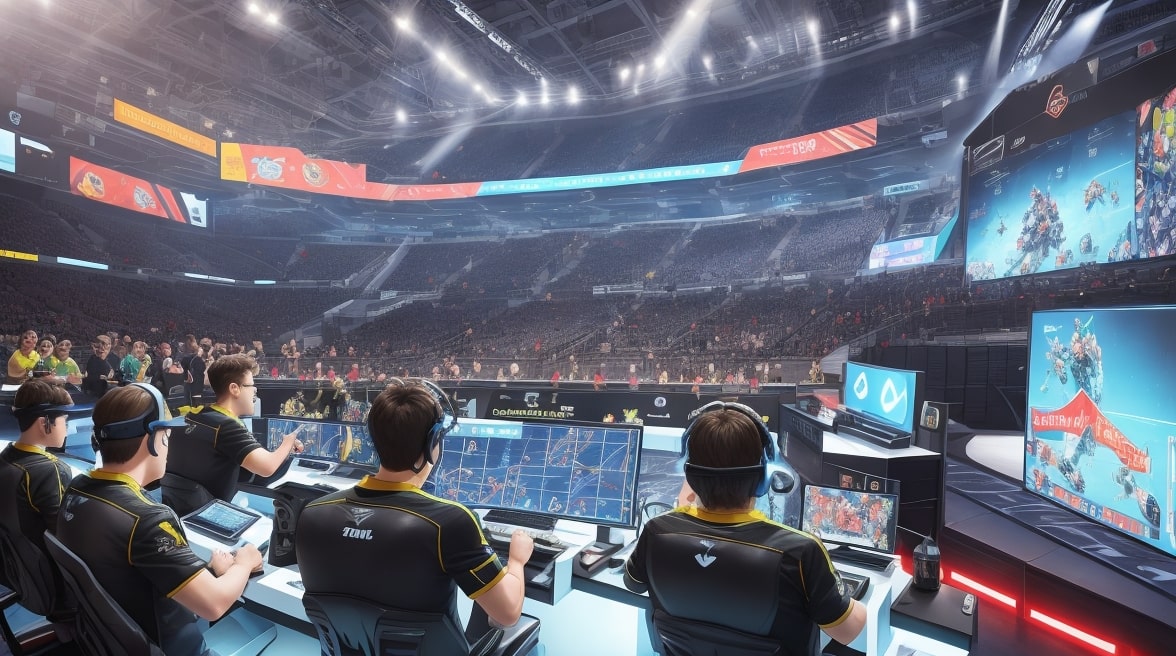The Coaches’ Role in Esports: Creating Digital Arena Champions
Coaches’ jobs have become essential in the quickly developing world of esports, where ability and strategy meet in virtual arenas. This article explores the various roles that esports coaches play, how they affect team performance, and how coaching is changing in the digital age.
Overview: The Development of Coaching in Esports
Electronic sports, or esports, have grown from a niche pastime to a worldwide sensation. The rise of esports coaches results from the demand for organized training and strategic direction created by the professional leagues and significant events that draw millions of viewers. This article examines coaches’ critical role in the success of esports teams and how they contribute to it.
The Development of Coaching in Esports: The Early Years
Coaching was a notion borrowed from traditional sports in the early days of esports. Teams initially relied heavily on peer learning and player self-management. The demand for committed coaching staff increased along with the competitive landscape.
Contemporary Coaching Dynamics
A team’s success nowadays depends on its esports coaches. They offer a unique combination of game expertise, psychology, and strategy. Today’s coaches work on various projects, from creating game plans to overseeing player welfare and team relationships.
Principal Duty of an Esports Coach
First, strategic planning
One of an esports coach’s main responsibilities is creating and improving game strategy. To develop tactical strategies that take advantage of their team’s and their opponents’ advantages and disadvantages, coaches watch opponents play, research meta-changes, and analyze games. In a continuously changing world, strategic planning is essential to maintaining competitiveness.
2. Training and Player Development
Coaches work directly with players to enhance each player’s unique abilities and overall Performance. This includes planning training programs, establishing objectives, and giving feedback. They aid players in improving their mechanical prowess, judgment, and in-game communication.
3. Dynamics and Team Management
Success depends on preserving a positive team climate. In addition to handling interpersonal issues, coaches oversee team morale and facilitate efficient player communication. They frequently serve as motivators and mediators, assisting groups in overcoming obstacles and preserving unity.
4. Examining Performance
Analysis of games played is an essential part of coaching. Coaches evaluate player performance, watch game films, and pinpoint areas that need work. This study aids in comprehending errors, improving tactics, and getting ready for upcoming games.
5. Assistance with Psychology
Playing video games requires mental as well as technical skills. Trainers offer psychological assistance to athletes to help them focus, handle stress, and develop resilience. They assist athletes in coping with competitive strain and preventing burnout.
The Effect of Coaches on Teams in Esports
1. Improving Group Outcomes
Effective coaching can significantly impact a team’s success. By implementing well-considered strategies and developing a strong team dynamic, coaches assist teams in improving their Performance in competition. Under their direction, players are guaranteed to be ready and flexible under stressful circumstances.
2. Developing Game Plans
Coaches significantly influence how games are played. They create creative strategies, examine trends, and adjust to meta-changes. This strategic depth gives teams a competitive edge, enabling them to outmanoeuvre rivals and win.
3. Fostering unity within the team
Success in esports requires a cohesive team. Strong interpersonal ties and efficient communication are fostered by coaches for their athletes. A united squad is likelier to function well under duress and work together during games.
4. Development of Players
Coaches aid athletes’ development by providing tailored instruction and constructive criticism. They aid players in honing their abilities, comprehending game mechanics more fully, and refining their strategic thinking. The entire team improves due to this all-encompassing approach to player development.
The Difficulties Esports Coaches Face
1. Adapting Quickly to Changes
The game mechanics, strategies, and technology used in esports are constantly evolving. Coaches need to stay informed about these developments to maintain their teams’ competitiveness. This requires constant learning and flexibility.
2. Handling Different Types of People
Esports teams frequently consist of players with a variety of personalities and backgrounds. Controlling these relationships and maintaining a positive work atmosphere for the team might be difficult. Coaches need good interpersonal skills to manage such variety properly.
3. Juggling Well-Being and Performance
In addition to Performance, coaches are responsible for protecting players’ health. This entails controlling stress, avoiding burnout, and keeping a positive work-life balance. Maintaining long-term success requires striking this equilibrium.
The Coaching of Esports in the Future
1. Including Cutting-Edge Technologies
Esportsbly will likely incorporate more cutting-edge technologies in the future. AI-driven analytics, virtual reality training, and data-driven performance measures will improve coaching methods and provide a more in-depth understanding of team performance.
2. Extending Duties and Positions
It is anticipated that coaches’ roles will rise as esports develop. In addition to their regular duties, coaches may also handle player health, media relations, and brand development. As a result of this evolution, coaches will need to be more versatile and able to overcome new obstacles.
3. Coaching’s Professionalization
More established procedures and the acknowledgement of coaching as a profession will result from the professionalization of esports coaching. It includes official training courses, credentials, and a heightened emphasis on coaching skill development. Coaching will become more widely acknowledged as an essential element of a successful team as the sector develops.
To sum up, coaches are essential in esports.
In the cutthroat realm of esports, coaches are essential to developing players and teams. Their duties include everything from team management and psychological assistance to player training and strategy formulation. As the industry develops, coaches will play an even more crucial part in the development and success of esports teams.
Coaches significantly impact player development, team performance, and strategic creativity in esports. They will continue to shape competitive gaming’s future by adopting new technologies and adjusting to the shifting dynamics of the esports scene.












Comments (2)
Excellent article! The role of coaches in esports is often overlooked, but they are crucial in shaping teams into champions. I love how you highlighted the strategic guidance, mental support, and discipline they bring to the table. Esports coaching is truly evolving, and your article captures that perfectly. Great insights—thanks for shedding light on this important aspect of competitive gaming!
Insightful read! Coaches play a crucial role in shaping esports champions, guiding teams to victory with strategy and support. Their impact is undeniable!